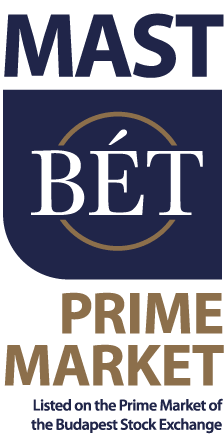Energy crisis in Europe
Firstly, we have to examine the serious energy crisis hitting Europe, also affecting our lives in the long run. This crisis will fundamentally transform our relationship with energy. Access to energy will be limited and prices will remain high. This situation will persist until renewable energy sources are introduced on a larger scale, which can take 5-10 years even with the expected acceleration in the pace of investment into them. Former energy quantities will not be available, therefore energy consumption limitations will come into focus across Europe. The good news is, though, that implementing climate policies will also accelerate.
The market for insulation materials
For the insulation material market participants, the energy crisis is a factor positively affecting the market in the long run. Thermal insulation will be inevitable in crisis management. From now on, building insulation is not just an option since both winter and summer energy consumption must be radically decreased while people’s heat and comfort needs remain the same. This decade, the market of insulation materials is expected to dynamically expand in Europe, whereas in Hungary this branch might become of national economic interest. In Hungary, we are anticipating heavy demand due to the upcoming end of the 3+3 million HUF home upgrading subsidy programme, which may result in a strong second half-year in the insulation market.
Property market
Finishing the reduced utility costs system will cause major changes to the property market. Well-insulated homes that have a low energy consumption, and are therefore cheaper to sustain, will have a stable value and be easier to sell, whereas buildings with high energy consumption and low energy efficiency will significantly lose value and need more time to be sold. The regulation applies to metered locations of consumption, which means that larger properties will have to become more energy efficient to maintain their value and sustainability. As regards apartment buildings, insulation has become a critical factor as apartments with high energy consumption and without insulation will be impossible to sell.
Construction industry – New build homes/modernisation
In the case of new builds, we do not think that the market will suddenly stop because buildings that were granted building permits this year can be constructed under the more favourable VAT rules before 31 December 2026. In this inflationary environment, fewer new projects will kick off, but constructions that have already started will be completed. However, besides a decrease in the number of new builds, we are expecting a drastic boost in building modernisation, where Masterplast’s products and sales are in a strong position.
Funding
The best way to reduce energy bills is by using the energy that is not used at all. People will live in more reduced financial circumstances, consequently, the focus will shift toward energy-saving investments. Insulation can be the best thing to invest savings in during this period of inflation when money is losing its value week by week. Furthermore, it is much needed to continue the current 3+3 million HUF home modernisation subsidy programme, but in this energy emergency, material sources should be narrowed down so that funds could only be spent on energy saving, or energy efficiency modernisation work.
Reducing energy consumption by insulation is a national economic interest
In this situation, reducing the country’s energy dependency and energy bills, improving and maintaining property standards, keeping up the comfort of the building’s residents, and maintaining affordable housing for families all indicate how important it is to thermally insulate buildings. A new building energy modernisation programme would offer immediate and significant solutions. In Italy, reliefs on the following years’ tax were allowed to be used to cover 110% of investment costs. Based on this successful Italian model, a similar subsidy system using tax reliefs would be easy to realize in Hungary, too.

Masterplast Nyrt.
Founded in 1997, the Masterplast group is one of the leading building material producer and distributor companies in the Central Eastern European region. The company group owns subsidiaries in 10 countries, and sells products in a further 30 countries. The company is registered in the premium category on the Budapest Stock Exchange, and had revenue of 145,2 million euros in 2023.

